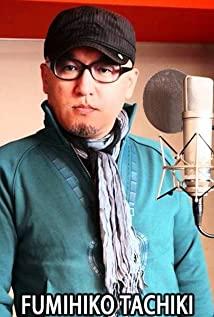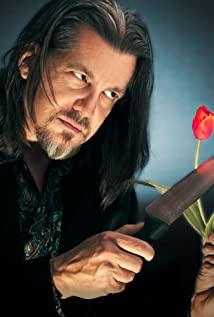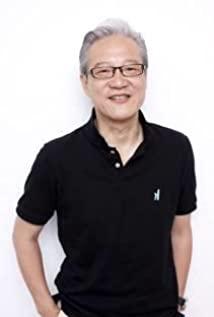In such a structure as the Oedipus complex, Freud emphasized the subject's identification with the father, of course, the subject's identification with the mother first, and then the father interrupted this identification with the castration complex, making the child identify with the mother. Own. The daughter of Freud, Anna Freud, including the British and American psychoanalytic schools, emphasized the subject's identification with the mother, while Jacques Lacan claimed that he insisted on Freud's path because he insisted on emphasizing the subject's identification with the father. recognition. Of course, not only that, Lacan is not a Freud repeater. He also made important rewrites of Freud, such as introducing the method of structuralism. Structuralism can be roughly understood as the application of some achievements and methods of linguistics in the 20th century to the study of human activities in other fields of philosophy and social sciences. By introducing the method of structuralism, Lacan retains the structure of an Oedipus complex such as father, mother, and subject, but the transformed father is no longer a biological father, but has become a biological father. The first main thread of the article - the name of the father, the name of the father, Nom-du-Père. In order to briefly explain the meaning of the father's name, let me quote a Žižek joke told by Mr. Zhang. Some journalists will ask Zizek as a philosopher some very boring personal life questions, such as asking Zizek how he is related to his own children, Zizek will answer "I am not a qualified father", if we are in To understand this sentence in the daily context, it may be understood that Zizek is too busy with his studies and work to take care of his children, but if it is in the context of Lacanian psychoanalysis, this answer will have another meaning: as a physical A living father is not a qualified father, a qualified father is a father who kills things as a word, becomes a father's name, a symbolic function. To illustrate this I may quote a passage from Joyce in Ulysses: "As far as conscious reproduction is concerned, paternity is not known. The mystical possession of the begotten, an apostolic tradition. The church was not built on the Virgin Mary, which treacherous Italian intellectuals threw to the masses of Europe, but on this mystery—on this mystery unshakably Because just as the world, macro or micro, is based on nothingness. It is based on uncertainty and impossibility. A mother's love, nominative or accusative, is perhaps the only real thing in life. Father Identity is a legal fiction. Who is the father who is loved by all sons and who loves all sons?” Here Joyce is talking about the Christian Mary Terrier, who is very keen The question of who our true blood father is has been indeterminate for quite some time in human history, relative to the certainty that we were born from our mother, who was an open question . But most of us have no shortage of fathers in most eras. Why? Because fathers are fictions imposed on us by some components such as family, symbols, and laws. Of course, it doesn’t matter. It is through this fiction that we obtain from the void. our self-ideal.
Through the understanding of the father's name, we can enter the first ACG text to be discussed today, the famous father figure - Ikari Yuandu, of course he is a qualified father. Let's take a look at the first episode of EVA's TV version, which is the first scene where Ikari Yuandu appears. At the beginning of "EVA", Ikari Shinji and Ikari Yuandu met for the first time. Such a scene is the first time Ikari Yuandu appeared in the name of his father. Why do I say that Ikari Yuandu is the most qualified father? He had hardly fulfilled his father's responsibilities before this scene, but as soon as he appeared on the stage, he appeared in front of Ikari Shinji with a commanding attitude and absolute majesty to give orders to him, and such an order was also a ban. Why is it banned at the same time? Lacan is playing a word game here, Nom-du-Père→Non-du-Père, what is the function of the father's name, a function of issuing a ban. We recall the bourgeois nuclear family model just mentioned. In the beginning, the subject has a taboo desire for the mother, and the father cuts off this desire through the threat of castration, establishing the subject's identity with the father. This is the general understanding of Freud, and in Lacan there is a different interpretation. In Lacan, it is not the father who intervenes and interrupts the subject's identification with the mother, but the father trades for the subject's desire for the mother. What kind of deal? The symbolic phallus Φ is exchanged for the subject's imaginary phallus φ. What is Phallus? The Greek word originally meant male genitalia, but after Freud's introduction to psychoanalysis (especially in Lacan and later) its meaning has been different from penis, the bodily organ. For the symbolic phallus, it is a signifier, or word. What is the meaning of this word? Represents the subject's desire. Phallus is a word that characterizes the desire of the subject. The father uses such a word/signifier to exchange the subject's desire for the mother. Why interpret the Oedipus complex as such a transaction, and why use the text of the EVA? Please note that the scene just now is not only the scene where Ikari Yuandu first appeared, but also the scene where Ayanami Rei appeared for the first time. In this scene, Ikari Yuandu ordered Shinji Ikari to drive the EVA, and Shinji Ikari was in this scene. The object abandoned in the scene is Ayanami Rei (the imaginary Phyllis, whose body is actually a clone of Ikari Shinji's mother, Yui Ikari, the reference to the Oedipus complex is obvious). If we know anything about Lévi-Strauss's structuralist anthropology, we know that the father's incest taboo is at least in Strauss's sense of the less developed In the study of the Beginning tribe, the father signifier has a duality. On the one hand, he prohibits his children from contacting women of the same clan, and on the other hand, he also guides the order of marriage within the clan. The subject cannot contact women of the same clan, but can marry women of different clans. Such a duality is also evident in "EVA". For Shinji Ikari, on the one hand, there is Rei Ayanami. Of course, she is both the object of incest desires and the object of incest taboos, while Asuka is a permitted one. object. In the name of the father, it is a strict father who issued a ban, through the ban, Ikari Shinji was forbidden to obtain Ayanami Rei, so who regulates the relationship between the main body and Asuka? This leads us to the second clue we are talking about today - the anal father, who is a total indulgent father, as opposed to the harsh, injunction father, who asks his children to enjoy something, the anal father The representative in "EVA" is Katsuragi Misato. At this point, we can understand the beauty of Lacan's structuralist transformation of psychoanalysis: Misato Katsuragi is a biological woman, but she is now acting as an anal father. Lacan once said that women are also a kind of father's name. The father's name is just some symbolic functions, a symbolic position, which anyone can occupy. First there are structures like this, and then there are specific individuals that populate these functions. Why is Misato Katsuragi an anal father? Let's recall the plot after the TV version of "EVA". Ikari Shinji dominated Katsuragi Misato's house, and then Asuka also lived in this house. Misato Katsuragi actually matches these two people a lot of the time. As an anal father, she encourages the subject to have fun and enjoy the woman Asuka. Now comes the question, of course we could say at first glance that anal fathers are antithetical to ban fathers, but is that really the case? Let's look at the text of "EVA". In terms of social roles, Katsuragi Miri is Ikari Shinji's boss, Ikari Yuandu's subordinate, and the intermediary between the two. If you look at it this way, the relationship between Ikari Yuandu and Katsuragi Miri The opposition seems to be less pronounced. In order to better understand the anal father and the name of the father, I introduce a famous proposition of Lacan: Kant and Sade. Kant elevates man and human reason to the status of making laws for all things. His ethics excludes the material of subjectivity in the supreme good, that is to say, excludes personal pain and happiness and other things that he considers pathological, and makes the supreme good become a purely formal universal law. How to understand? Kant believes that the starting point of the ethical (supreme good) cannot be for the happiness of anyone, nor for the happiness of others. These are individual rather than universal things. Ethics should proceed from a general form, morality Whether or not it is not in the specific content but in the form. Sade, as we know, was a famous erotic maniac, the S in SM comes from Sade's name, and he was not only extremely perverted, but also wrote down his own experiences of perversion, such as "The Philosophy of the Boudoir." The proposition of Kant and Sade was not first put forward by Lacan. Horkheimer and Adorno's Dialectics of Enlightenment had already been put forward. They both believed that Sade was the result of Kant's ethics. Ethics, elevated to the status of legislation for all things, is liberated from some of the traditional shackles, and Sade is the bourgeois subject freed from such shackles. Lacan was unaware of what the Dialectics of Enlightenment had to say about this, and his later presentation was an accident. So how does Lacan view this proposition? Lacan made his own "Critique of Pure Desire" on the basis of Kant's "Critique of Pure Reason". How to say it? Kant believed that man is a being with universal reason, and Lacan would add that man is also a creature with universal desire. For example, Kant once described a libertine who coveted a sexual object in a room. Of course the libertine wanted to rush into the room to satisfy his desires, but if you set up a gallows in front of the door at this time, tell him Of course you can rush in to satisfy your desires, but you will be hanged after you come out. Kant believes that the libertine at this time will choose to give up after rational weighing. Lacan thinks Kant's idea is somewhat naive. People still have universal desires, and it is at this time that a pervert/pervert like Sade will rush in to satisfy their desires regardless of the existence of the gallows. Lacan goes above and beyond that, it is not the object in the room that attracts perverts/perverts like Sade, but the gallows, the possibility of being hanged. Bataille felt this acutely before Lacan, saying that we need institutions and excesses. Only when we have the system and the prohibition of the prohibition can we enjoy the joy of violating the prohibition. Bataille's words can be paraphrased as follows: the law, as a ruthless prohibition, inherently calls for a transgression of it, through which one can obtain a kind of enjoyment, the law inherently transgresses itself. Lacan goes a step further, claiming that the law is the most serious of all human sins since time immemorial. Let's start by imagining Freud's topography, the superego-ego-id iceberg diagram. How, Lacan would say, does an injunction from the paternal other work in the subject? It works through the superego. It was the Other who imposed laws/bans on me from outside my subject, now accepted by my superego, which decrees towards the ego. The ego is, of course, very miserable because of the torment of Dhamma, but the superego manages to gain some happiness at this time. The superego fulfills the law smoothly, and sees the ego being tortured, and the superego takes pleasure in it. The reason why we can identify with the law is that the law makes at least a part of the subject's spirit happy. We take pleasure in the fact that the law tortures us, and therefore says that the law is the most severe of our many crimes. On the one hand, it is said that the law calls for transcendence of itself; on the other hand, the law itself is a crime, which clarifies the proposition of Sade and Kant. Once we conclude this argument, we discover that the name of the father and the anal father are actually the same thing. In the process of dialectics in the Hegelian sense, the name of the father is transformed into an anal father, who by imposing some injunction on the subject, he tortures the subject and derives pleasure from it. So the problem becomes more complicated. There is a deal between the subject and the father's prohibition, exchanging an imagined phallus (incest desire) for a symbolic phallus (father's promise, a signifier\word that characterizes one's own desire). The deal might have been able to go on if the father still maintained a harsh fatherhood attitude, which seems like a reciprocal situation. But it was the father who obtained illegal enjoyment in this transaction by torturing the subject and performing symbolic castration. The transaction seemed to become unbalanced on the subject's side. The father seemed to keep more and lose less. What the subject gives up seems to be a little more than what he gets, and this thing (what the subject loses) is made object a by Lacan. So I reflect the transactional change of the subject’s symbolic castration in the desire map and what does it become? Now the subject thinks that what he gives up has a surplus called the object’s small a compared to what he gets, and the subject’s Desire is exactly the desire for this object, little a, so the subject eagerly threw a question to the father, began to question the father, and asked the father to truly complete the transaction, make this transaction a reciprocal transaction, and let the father Give the object small a back to yourself. But in what form is such an inquiry given? It becomes this question: what exactly do you want me to do? The subject is asking his father, what exactly do you want me to do so that you can return the object you confiscated (the filthy leftovers) to me? In this way, the subject threw this question to the father, but the problem was that the father himself did not know what the object small a confiscated from the subject was. This leads us to the third thread of the main thread we are talking about today - the humiliated father.
What is a humiliated father? Let's take a look at the theatrical version of "EVA": I truly care for the disgraced Ikari Yuandu among you. In this scene, Ikari Yuandu is dialectically reversed from the majestic father's name to the pleasured anal father, and now it is because of this pleasure that he destroys the majesty of the father's name and becomes a humiliated father. Why did Ikari Yuandu finally collapse? Not only is it broken down biologically, but it is also broken down as a nominal, symbolic function. What's wrong? It's because he exposed his desires too much in such a situation, and what exactly is Ikari Yuandu's desire? The fact that he can't face his own child, Shinji Ikari, lies in this question: what do you want me to do? This is a message from the main body Shinji Ikari to Ikari Yuandu - the order of the father and the other -, but Ikari Yuandu can't answer such a question, so he is eager to throw this question to the other side, to whom? Tossed to the other of the father's other, a mOther, a mother's English word with a capital O, but here Lacan emphasizes to us that there is no "other of the other", that is, the father can no longer pass on this question Going down, no one can answer this question. mOther corresponds to a concept of Freud, das Ding, (English Thing, Chinese translation of the original quality), is an imaginary person who can answer the question "What do you want me to do?", but the problem is that this person does not exist. Therefore, the question "What do you want me to do?" follows the line of the desire map, and is thrown from the subject to the father-other, and the father-other also wants to be thrown to an other, but the question is "the other's The Other" does not exist, so the question is left open. Therefore, the subject is also suspended along this line and cannot be effectively placed. At this time, the emotion felt by the subject is called "anxiety" by Lacan and Freud. This "anxiety" is a kind of lack of object. The emotion of , because its object is left in the air in this question, it is not an emotion thrown to an object, but an emotion of lack, and here is an imaginary other who can answer the question , but this other does not actually exist. Here is another concept mentioned by Lacan, which is the boundary of Ate extracted in a seminar through Sophocles' tragedy Antigone, in which it is a goddess , which Lacan interprets as a limit. At the end of Ate, the subject sees the truth of his desire, that is, the object he ultimately desires and ultimately loses, but once the subject crosses the Ate to touch this object, the subject disappears, because the object is only in the It exists in the imagination, but it does not actually exist. A life-and-death boundary like Ate leads us to the next ACG text to be told today - Makoto Shinkai's "Beyond the Cloud, the Promised Place". Before that, I will add about the humiliated father. This image is in another animation "filp flappers". This main story pays homage to "EVA" in many places. It also has a very humiliating image of a humiliated father. Whose insult? A mother figure, an insult to the object thought to be able to answer his question. Back to "EVA", after the scene just now, Da Bai Li appeared, executing the human completion plan, this Da Bai Li is das Ding, it is actually an object that is thought to be able to answer the question in the imagination. This object does not actually exist. If the subject really reaches the point where the question "what do you want me to do" can be answered, the desire of the subject will also disappears, and the subject therefore disappears. For Lacan, how does one define man? It is through such an illusion formula that he defines man. Here is the subject of man, and there is the object of his desire, the small a. There is a very strange diamond-shaped symbol here, which is discord, development, connection and divergence. The final absence of the object of desire is a positive signal for the formation of the subject. The subject can only become a person when the object of desire cannot be obtained, and can directly realize his own essence from other animals. Out of inertia, become a subject. Now we know what Ate means, Ate is this strange diamond-shaped symbol that ensures the ultimate separation of the subject from the object of his desire, and if this becomes a horizontal line and the subject steps over Ate, he eventually disappears. Next, let's take a look at "The Other Side of the Cloud, the Promised Place". Japan is divided into two regions: the north and the south. The object, not the symbolic, capitalized phallus, is the imaginary phallus). In his youth, Hiroshi looked across the strait to the giant tower. The heroine Sayuri made an agreement with him to assemble a small plane to see the giant tower. Ji also lost motivation. Years later, Hiroshi, who was living in Tokyo with lost goals, started dreaming frequently of Sayuri for some unknown reason. He accidentally learned that Sayuri had suffered from an unexplained memory disorder since the summer of fifteen years old that year. Sleeping in the hospital. Then, for no reason, Hiroki regained his dream of building a plane to see the Phileas with Sayuri. Taking advantage of the war, he took the sleeping Sayuri and flew the plane over. Tsugaru Strait, crossed the Ate to touch the imaginary Phyllis. Then, Sayuri wakes up after touching the tower with Hiroshi, and the story ends there. You will find that the text of "Beyond the Cloud" is isomorphic to fairy tales, and the whole story stops abruptly at one point. Therefore, from a psychoanalytical point of view, it can be said that there must be something repressed here, wanting to say but not being able to say it, and fortunately, I think Makoto Shinkai still said this thing in "Five Centimeters Per Second", "Five Centimeters Per Second". "Five Centimeters Per Second" is a non-materialized ending of "Beyond the Cloud". Leads to the last thread of my main thread today. It is not a kind of father figure, but the ultimate absence of the father, because the father has collapsed in the stage of humiliation, and I call such a fatherless subject a post-Oedipal subject. Dabai Li in "EVA" shows the disappearance of the main body after crossing the Ate and touching the ultimate truth of desire, while "The Other Side of the Cloud" is more ingenious. It implicitly gives the development of Hiroshi and Sayuri after they came into contact with the giant tower. If omitted, the story ends abruptly. In "Five Centimeters Per Second", Takaki met Mingli at the end of the film. After passing by Mingli on the railway, he turned and left, becoming a post-Oedipus subject. The post-Oedipal subject has a depressive structure, which Freud explained in "Mourning and Depression". The symptom of this depressive subject is that he regards the acquired desire object as lost. . What does that mean? After meeting Mingli by chance, Guishu did not pursue her, but turned and left, staying far away from such an object of desire. If I take this scene back to "The Other Side of the Cloud", you will understand that the development of Hiroshi and Sayuri after they came into contact with the giant tower is that the two broke up. Guishu knew that he couldn't step over Ate to contact Mingli. Let's take a look at the last scene of Asuka and Ikari Shinji in the old theatrical version of "EVA", and recall the proposition of Kant and Sade. What really attracts the paranoia is the possibility of being hanged by the gallows, and now the harsh father's Names collapsed because of humiliation, gallows were burned, and sexual relations ceased when the intermediary between sexual objects disappeared. Why do I say your tree is wiser here? If he really went to find Akari, what would be the actual result? We can imagine through the living conditions of Takaki and Akari's ring (and of course the Japanese social environment metaphor) that sexual relations do not actually exist. The reality will be exposed. So Takaki avoided the tragedy through the depressive structure, avoided Akari, avoided the fact that sexual relations did not exist, and as Zizek said, avoided the non-existence through prohibition. das Ding does not exist, the mother other that satisfies all our desires does not exist, and the subject desires something that does not actually exist and feels great anxiety. Now the father uses his prohibition to intervene, and after the desire for the mother other is forbidden, the subject will back to normal. The subject finds a "person" to blame, not because the mother other does not exist, but is forbidden by the father. So in the Oedipus complex, the father plays the role of a kind of savior, saving the subject from the anxiety that shines on the primordial substance. And now, from the father's name to the anal father to the humiliated father, the role of the father's name has collapsed, so what does the subject do at this time? Let's recall the superego. Now that the father's name is gone, the subject is given a ban by the superego, and now the subject will consciously avoid the tragedy and the object of his own desire, and finally structure the subject in a symptom. Through this symptom, the question of "what do you want me to do" is no longer in the air, but has been implemented. How can it be implemented? Rely on the superego to impose the prohibition on itself. Do I still need to say what the post-Oedipal subject is? Think about it, how do we become the subject of self-conscious weight loss, and no one actually shows up to ask us for weight management? No, it's actually a ban issued by our superego to ourselves, to go to the gym, to go on a diet, to torture the main body like this, but through this torment of the superego, we gain happiness, and we know what to do. That's all. The above is the main content of what I want to talk about, and then there are some additional thoughts of mine. You see, from the name of the father to the anal father to the humiliated father to the post-Oedipal subject, what do I actually think it reveals? I call it a kind of psychoanalytic historical materialism. Gradually from Kant's enlightened, disciplined subject to a neoliberal, Deleuze-like body without organs, this process is actually the evolution of capitalism (or, in other words, the force of Bidor model), which is the evolution of a libidinal economy. The current globalized world, especially in Europe and the United States, has received the promise of neoliberalism, that is, the promise of lifting the ban on the name of the father, which was obtained under the slogan "Prohibit 'Prohibit'" in the May 1968 French storm That promise -- we'll lift all bans, but what's the result? Post-Oedipus subject. We are not liberated, we cannot be liberated. The libidinal economy does not allow us to be liberated, we can only structure ourselves in a symptom. Lacan says that all those subjects who seek the help of the psychoanalyst because of the torment of their symptoms are actually enjoying their symptoms, because that symptom is the only subject where the desire disappears. What makes the subject persist, that's why I say why you can't step over Ate, if the father doesn't give you a ban then only the superego can give it to itself. If all of you here have an optimistic and progressive enlightenment attitude toward humanity, what I'm talking about today may be a little hopeless. When we lift all the bans and be ourselves, what we are actually going through is a great superego blackmail, and what we are doing is really just a symptomatic self. Is this the end? Is there no way out? Does not the psychoanalytic perspective offer us an alternative historical option? Let's look at the Desire Diagram, part after the post-Oedipal subject structures itself in symptoms. Lacan's triples: symbolic, imaginary, and real. The line of the father’s law is a symbolic line, and the subject’s mirror image is an imaginary line, and the line that leads from anxiety to symptoms is still an imaginary line, and the subject regains his desires in the imagination. of satisfaction. What's the part I made up for? The real line, the real Real (strictly separate from the reality, where there is reality there is no Real, and where there is reality there is no reality). How to explain this line? The subject previously identified with the father, but the father was revealed as the humiliated father, so the subject threw his desires out of the father other, and now he is guided to this position by the drive. What kind of location? A missing signifier in the Father Other (the Big Other). It is such a position that historical materialism in psychoanalysis offers a possible alternative, but it is a missing signifier/word, here I can only name X, or use one of Lacan's Strange statement: Women don't exist. This X also does not exist. A final historical alternative is women. To explain this strange literal expression, let's go back to the sexualization formula. We won't talk about the other quadrants today. Please pay attention to this thing. There is also a lacking subject S, and then there is a subject that is a male subject. You can also regard this line as Ate. The male subject crosses the Ate to see his a, which is still a phantom formula, the desiring cause of this, but he cannot actually touch it. The subject La here is a female subject who also identifies with the father across Ate. Of course, no subject can escape from the father. She identifies with the Phallus that the father gave to represent desire. But at the same time, women turn towards the signifier that is lacking in the Other than Phallus. I will not give too much explanation about the lack of signifiers in this other, I will only suggest It shares the same points with the keynotes proposed by the radical thinkers of the 20th century. Why can't the signifier lacking in the Big Other be Badiou's "passion for the Real", Derrida's "Marx's Ghost", or the "vacuum" in Althusser's manuscripts in his later years? Finally we come back to the Messiah, why is the lack of signifiers in the Other not the calamities and corpses that Benjamin is heading towards in The Philosophy of History through the new angels? For this lack of signifier enables us in Messianic time, in stagnant change, to liberate the subject from the pseudo-actions of hysteria and depression, and to meet the still-standing Real. Finally allow me to end this article with a quote from Zizek: "Then here is the position that the left must not "give up": namely that the left must preserve all the traces of historical trauma, dreams and disasters, because these traces are those that account for The dominant "end of history" ideologist may be happy to annihilate - the left must turn itself into a living monument to itself, so that these wounds will remain marked for as long as the left exists. Such an attitude, absolutely Instead of confining the left to nostalgia, the only possibility is to create a distance in the present, a distance that allows us to recognize the signs of things.”
View more about Neon Genesis Evangelion reviews











